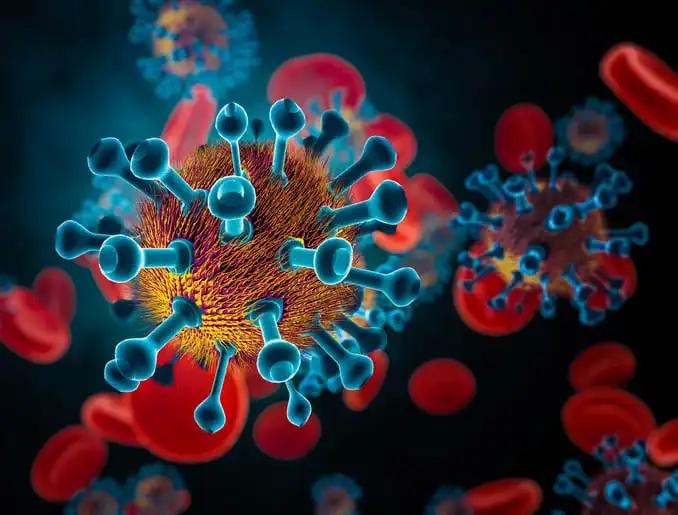KEY TAKEAWAYS
- A phase 3 clinical trial (NCT03785964) investigated the efficacy of nirogacestat in adult patients with advancing desmoid tumors.
- The primary aim was to measure progression-free survival in patients receiving nirogacestat compared to placebo.
- A double-blind, randomized, and placebo-controlled methodology was utilized, with patients allocated in a 1:1 proportion to obtain either nirogacestat or placebo twice daily.
- Nirogacestat demonstrated a substantial benefit in progression-free survival compared to the placebo group, with a hazard ratio for disease progression or death.
- Secondary patient-reported outcomes such as pain, symptom burden, physical or role functioning, and health-related quality of life were significantly improved.
- Frequent adverse events were associated with nirogacestat, including diarrhea, nausea, fatigue, hypophosphatemia, and maculopapular rash.
Desmoid tumors are infrequent, regionally invasive, and greatly recurrent soft tissue neoplasms that lack authorized therapeutic interventions. A phase 3 clinical trial was performed on an international scale, utilizing a double-blind, randomized, and placebo-controlled methodology to investigate the efficacy of nirogacestat in adult patients with advancing desmoid tumors, as per the Response Evaluation Criteria in Solid Tumors, version 1.1. Subjects were allocated in a 1:1 proportion to obtain either the oral γ-secretase inhibitor nirogacestat (150 mg) or a placebo twice daily. The principal outcome measure was progression-free survival. Between May 2019 and August 2020, a cohort of 142 patients was enrolled in a clinical trial, with 70 patients randomized to the nirogacestat arm and 72 randomized to the placebo arm. The clinical trial results indicate that Nirogacestat demonstrated a substantial benefit in progression-free survival compared to the placebo group (hazard ratio for disease progression or death, 0.29; 95% confidence interval, 0.15 to 0.55; P<0.001). The probability of remaining free of events at the 2-year mark was 76% for the Nirogacestat group and 44% for the placebo group. Consistent inter-group disparities in progression-free survival were observed across pre-determined subgroups. The observed rate of patients who exhibited an objective response was notably greater with nirogacestat compared to placebo (41% versus 8%; P<0.001).
The median duration for a response was 5.6 months and 11.1 months for nirogacestat and placebo, respectively. The percentage of patients who achieved a complete response was 7% and 0% for nirogacestat and placebo, respectively. Significant differences were observed between groups in secondary patient-reported outcomes, such as pain, symptom burden, physical or role functioning, and health-related quality of life, with a P< 0.01. Nirogacestat was associated with frequent adverse events, including diarrhea (observed in 84% of patients), nausea (in 54% of patients), fatigue (in 51% of patients), hypophosphatemia (in 42% of patients), and maculopapular rash (in 32% of patients). Most adverse events (95%) were classified as grade 1 or 2. In females of reproductive age who were administered nirogacestat, 27 out of 36 (75%) experienced unfortunate occurrences indicative of ovarian dysfunction, with 20 females (74%) exhibiting resolution of the symptoms. The administration of Nirogacestat demonstrated significant advantages in progression-free survival, objective response, pain management, symptom burden reduction, improvement in physical and role functioning, and enhancement of health-related quality of life in adult patients with advancing desmoid tumors. The incidence of adverse events associated with nirogacestat was notable, although predominantly mild in severity.
Source: https://pubmed.ncbi.nlm.nih.gov/36884323/
Clinical Trial:https://clinicaltrials.gov/ct2/show/NCT03785964
Gounder M, Ratan R, Alcindor T, Schöffski P, van der Graaf WT, Wilky BA, Riedel RF, Lim A, Smith LM, Moody S, Attia S, Chawla S, D’Amato G, Federman N, Merriam P, Van Tine BA, Vincenzi B, Benson C, Bui NQ, Chugh R, Tinoco G, Charlson J, Dileo P, Hartner L, Lapeire L, Mazzeo F, Palmerini E, Reichardt P, Stacchiotti S, Bailey HH, Burgess MA, Cote GM, Davis LE, Deshpande H, Gelderblom H, Grignani G, Loggers E, Philip T, Pressey JG, Kummar S, Kasper B. Nirogacestat, a γ-Secretase Inhibitor for Desmoid Tumors. N Engl J Med. 2023 Mar 9;388(10):898-912. doi: 10.1056/NEJMoa2210140. PMID: 36884323.



